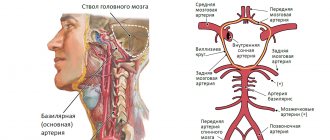“Owl” and “lark” are two common, opposite chronotype parameters (the nature of daily performance inherent in a particular person). In addition to the above two chronotypes, a subtype is also sometimes distinguished - “pigeon”. The theory about the nature of activity observed throughout the daily cycle arose quite a long time ago. At the same time, approximately experimentally, scientists confirmed the reality of the existence of chronotypes, and also established that they manifest themselves regardless of the presence of desire in people. The essence of the analyzed concept lies in a certain alternation throughout the day of the stages of efficiency and passivity characteristic of a person. According to this alternation, people are classified into one of the above chronotypes.
What kind of psychotypes are these?
All types have special characteristics. Early birds have been considered attentive and special since ancient times. They are distinguished by their ability to see what others cannot see.
Night birds do not boast of having such abilities. They prefer to go to bed early and wake up with the sunrise. The ability to see subtle nuances is a talent. They become professional photographers, artists, poets. Able to realize themselves in art and creativity.
It is a mistake to divide people into two types. Besides them, there is a third one - pigeons. Given the circumstances, they may go to bed late and wake up early, or vice versa. They easily change their routine without harming their own psyche. For other psychotypes this is difficult to do.
The owl man prefers to stay awake at night. They are distinguished by a deep psyche. Sensitive sleep. Even a small rustle can cause you to wake up. He loves to philosophize and dream. Poets and writers are often found among these.
Sport
The Pigeon type does not have a peak in physical activity. It is advisable to do training sessions from 7:00 to 9:00 or from 22:00 to 23:00. This type of person should not engage in too much physical activity. Otherwise there will be a violation in the schedule. If there are strong changes in the daily routine, this can trigger the onset of depression.
For night owls, the optimal period for performing physical training is considered to be from 18:00 to 23:00. During this period of time, the peak of activity occurs. A person can easily do gymnastics, cover long distances and perform all the exercises. "Owls" should perform cardio training with minimal intensity.
It is advisable for “larks” to train after getting up until 14.00. Physical activity will be very easy to do and will be beneficial. If you exercise in the evenings, there will be no positive results.
Attitude of others
Lark, owl, dove - the characteristics of each psychotype are individual. They are treated differently. It is known that they are incompatible.
To the larks
People are early risers - cheerful and positive. Thus, they are endearing to themselves. They are chosen as leaders.
They are creative individuals and have a keen sense of others. Good friends and work colleagues.
To the owls
They may give the impression that they are slow and behind other students. As they age, they are said to be “not of this world.” This is associated with a dreamy nature.
It's not easy to be friends with them. They prefer solitude. They don't like it when their personal space is interfered with. Closed, it is difficult to open up to others.
To the pigeons
They can be called universal. They easily find a common language with others.
They are not confrontational, so it is easy to communicate with them. They adapt easily to new friends.
They don't feel any discomfort. They achieve success in almost all their undertakings, and love to see them through to the end.
Centuries of discrimination
One way or another, the world is “tailored” for “larks”, and “night owls” are historically discriminated against and are included in the category of lazy people who do not want to adapt to the collective farm and get up with the roosters to make hay - with all the sanctions, reproaches and accusations that result from this. “Are you like the chosen one?” - they say to the night owls, trying to instill in them a false sense of guilt for absolutely normal biological characteristics and adapt them to production needs.
The tradition of collective censure and condemnation of “owls” goes back to ancient times, when late travelers could be attacked by night predators, as a result of which the tribe was left without extra labor, or even had to spend money on burying the remains. In addition, sources of fire and light were worth their weight in gold, and the “owls,” who egocentrically transferred valuable goods at night, went against the collective interests. Guided by the same considerations, women in Rus' in the old days tried to clean up before dark, simultaneously generating numerous signs about the imminent financial collapse of household ownership if they washed the floors after sunset and other heresy in the same spirit.
Of course, with such dominant social consciousness, many “night owls” are forced to cave in, but this ends sadly: you can ruin not only labor productivity, but also health. As scientists from Harvard found out several years ago, a third of the US working population regularly lacks sleep and works at half capacity, and employers suffer huge losses due to lack of sleep among employees and futile attempts to correct this situation. Falling productivity costs American companies $63.2 billion annually, but instead of accepting reality, they are trying to force night owls to sleep at night.
What's special
All people, regardless of their character, are special and individual. An owl or a lark have certain differences that make it possible to divide personalities into psychotypes.
Traits and character traits help determine the level of performance and endurance. Many employers take this information into account during interviews.
"Zhavoronkov"
This type belongs to creative, positive, joyful personalities. Everyone knows that they prefer to go to bed early and wake up with the sunrise. This is how they get energy for the whole day.
If they sleep late, they will feel uncomfortable all day long. This is due to a violation of their usual routine.
You can rarely find them irritable and angry. They generally look at any situation positively.
"Owls"
The owl and the lark are complete opposites in character. They fall asleep very late and sleep for a long time. If they wake up early, they will be sleepy and lethargic all day.
A tired night owl is unable to concentrate. Naturally, she has no work activity. Therefore, they usually engage in creativity, art and love to study philosophy and psychology.
"Doves"
The “pigeons” type is universal. Sleep patterns do not affect their psycho-emotional state. Therefore, it is easy for them to adapt to the right environment.
They can work in any field without discomfort. In life, successful, focused, purposeful.
They achieve their goals. Rarely succumb to depression and stress.
general characteristics
Each human chronotype is divided into 3 categories, which differ from each other in behavior and biorhythm.
Larks
They have a directly shifted circadian rhythm. This group of people goes to bed at nightfall and gets up at dawn. They prefer to conduct activities with a fresh mind. During this period there is a peak of activity.
If a “lark” does not sleep at night, in the morning the person will be in a state of suspended animation. It will be very difficult for him to return to his normal daily routine. At the same time, he will feel discomfort and may fall into a depressive state.
Owls
There is a regular delay in the rest phase. It is difficult for them to sleep at night, as there is a peak in activity. They always go to bed after 3:00 am. Therefore, night owls cannot wake up early.
This category of people prefers to work in the evening. If they work in a standard biorhythm, this can cause insomnia.
Pigeons
They are an intermediate type, to which people of the daytime type belong. They wake up later than early risers, but go to bed much earlier than night owls. People of this chronotype will be able to adapt normally to the change of night and day. At the same time, they will maintain normal activity throughout their waking hours.
The influence of biorhythms
Biorhythms affect everyone’s well-being and performance. Physical and emotional activity, as well as the functioning of the intellect, also depend on this.
It is important to pay attention to the work schedule when searching for a job. Within a day, you can determine your individual chronotype.
According to statistics, the world population by psychotypes is as follows:
- larks – 16%;
- owls – 33%;
- pigeons – 55%.
Given these data, we can conclude that the majority belong to mixed chronotypes. Interestingly, there are more women than men among them.
The biological rhythm, taking into account the work schedule for each type, has the following features:
- g – will work actively in the first half of the day;
- c – activity observed in the evening;
- d – workable during the day.
Such information will be needed by those who have not decided on a career.
Nutrition
Everyone has different biological rhythms. The body of those who get up late awakens 2 hours after getting up, so night owls need to eat after this period. You can only drink carbonated liquid early, as this activates metabolic processes and frees the intestines from accumulated toxins.
It is acceptable to replace water with apple juice or fruit salad. Night owls should not eat protein-rich foods in the morning. Muesli, fermented milk products, and natural coffee are suitable for them. After 2 hours, breakfast can be repeated, adding honey with a chocolate bar, bread or coffee.
“Owls” pay special attention to dinner. This regimen very often provokes indigestion and excess weight gain. They are advised to take few calories in the evening. “Larks” are ready to eat food immediately after waking up.
Their diet is as follows:
| Breakfast | Lunch | Dinner | Dinner |
| The ideal breakfast would be cottage cheese, milk porridge or sandwiches based on sausage and cheese. An ideal addition to such a protein breakfast would be a tonic vitamin salad. | It should consist of a large amount of carbohydrates, so the menu must include dried fruits, porridge, bread or muesli. | They have lunch from 13:00 to 14:00. The food is high in calories, since the digestive system is in phase 2 of activity. During the lunch period, it is recommended to eat potatoes with meat, soup or spaghetti with cheese. Black tea will help preserve your performance. | For dinner they prefer food high in carbohydrates. This could be food based on bananas, dough with jam, chocolate bar with green tea, porridge and muesli. Foods high in carbohydrates are quite easy to digest and affect the production of serotonin. |
"Pigeons" like to eat within 1 hour of waking up. During this period, their stomach and body fully wake up and begin to function. It is recommended to have breakfast with foods rich in fiber and proteins. Light food is also suitable: juice, salads based on vegetables and fruits, omelette with sausage and porridge with croutons.
Scientists' opinion
Since ancient times, psychology has made it possible to study the character of each psychotype. This data is necessary for the treatment of diseases, self-realization and life position. Biorhythms help you choose the right field of work.
Early birds are successful, achieve their goals and don’t stop halfway. A representative of the same psychotype is chosen as a couple. Then the union turns out to be strong and long-term.
Night people are often alarmed by their dreaminess. Scientists link this to sleep disturbances. Such people go to bed late, so their sleep is often not complete.
This is associated with drowsiness in the first half of the day. Their psychology is very deep, they are geniuses in their thinking and theories.
They can make good professors and teachers. Don’t stop them from going deeper into themselves; this is how brilliant ideas are born.
Pigeons inhabit most of our planet. They are universal, with a stable psyche of personality. Sleep patterns do not affect their mental performance.
They choose a job taking into account their own morals and preferences. They find it easy to communicate with others.
Doctors believe that chronotype is inherited, since biorhythms are embedded in DNA. Therefore, parents often observe similarities in behavior with a close relative.
Changing chronotype
Does this mean that a person's chronotype can change? Undoubtedly. A small child is usually a morning person, because this is how his parents organize his life. When a person has free choice, he can change his sleep and wakefulness patterns - often this happens after leaving school. Finally, a person discovers the liberties of a free life, and one of the attributes of the freedom acquired from his parents is precisely the schedule shifted to the “owl” side. When small children appear, life becomes a lark again, then, if the need for getting up early disappears, the person returns to the comfortable lifestyle of a night owl, and in old age most people like to wake up early, returning to the lark. Thus, a person’s chronotype is not something determined once and for all, and if circumstances require it, it can always be rearranged.
Advantages and disadvantages
Each chronotype has advantages and disadvantages. This is due to biological rhythms.
- Representatives of the “early” type have the advantage that it is easy for them to find a job and realize themselves. Being active in the first half of the day allows you to achieve success in work and business. Disadvantages include overconfidence.
- Among representatives of the “night” species, the advantages are considered from the creative side. Not every person is creatively talented. Among the disadvantages is a decrease in labor activity, it is difficult to choose a field of work.
- Universalists have the advantage of independent sleep patterns. Disadvantages – vigor during the day.
Psychological state affects a person. Self-realization and performance depend on this. People choose a couple to start a family based on their character. Incompatibility can cause divorce.
Owls may be smarter
Psychologists Richard Roberts from the University of Sydney and Patrick Kyllonen from the BBC Research Group tested 420 representatives of different chronotypes. The level of professional training, knowledge of general mathematics, reading speed, perception speed and memory were measured. The results of the study were published by R. D. Roberts, PC Kyllonen. Morningness–eveningness and intelligence: early to bed, early to rise will likely make you anything but wise! / Personality and Individual Differences in 1999 in one of the major psychology journals.
The best results were shown by lovers of the evening and night lifestyle. The gap was minor, but quite noticeable. The biggest advantage was observed in the area of memory and the ability to do several things at once, quickly switching between tasks. These indicators were significantly better for owls.
So, contrary to popular belief, it is owls who are more efficient and successful at work, and not larks.
How to optimize the mode
So, you can’t argue with biochemistry, but you have the power to make your life a little less unbearable. If you want to get up earlier in order to get more done, do not try to instantly and radically change your routine: you will waste time, lying in bed from 9 pm with glassy eyes, and still waking up. You can try to make the morning start to be pleasant and become a full-fledged part of the day.
Ventilate your bedroom, don’t let yourself fall asleep in a stuffy room, clogged with yesterday’s germs and problems. If possible, sleep in the cold, but under a secure blanket.
When you close your laptop to go to bed, don't grab your phone to finish reading your news feed under the covers. The glow of the display prevents your body from recognizing sleep commands.
Don't force yourself with sudden loud alarms. Try waking up using your phone's vibration alert or soft music. A soft alarm is also included with most tracker apps and gadgets that track sleep stages and consider it a beneficial exhaust.
Don't eat at night. At night - two hours before bedtime. A full stomach, actively digesting food, prevents natural sleep and can even cause nightmares.
No compromises and “half an hour and I’ll get up.” It’s much more effective to run to the shower or make coffee without regaining consciousness: on the way, the daily schedule, task list and other horrors of the world around you will have time to load into your memory.
Try to go to bed at the same time every day. Not necessarily at 10 pm, but definitely before midnight.











